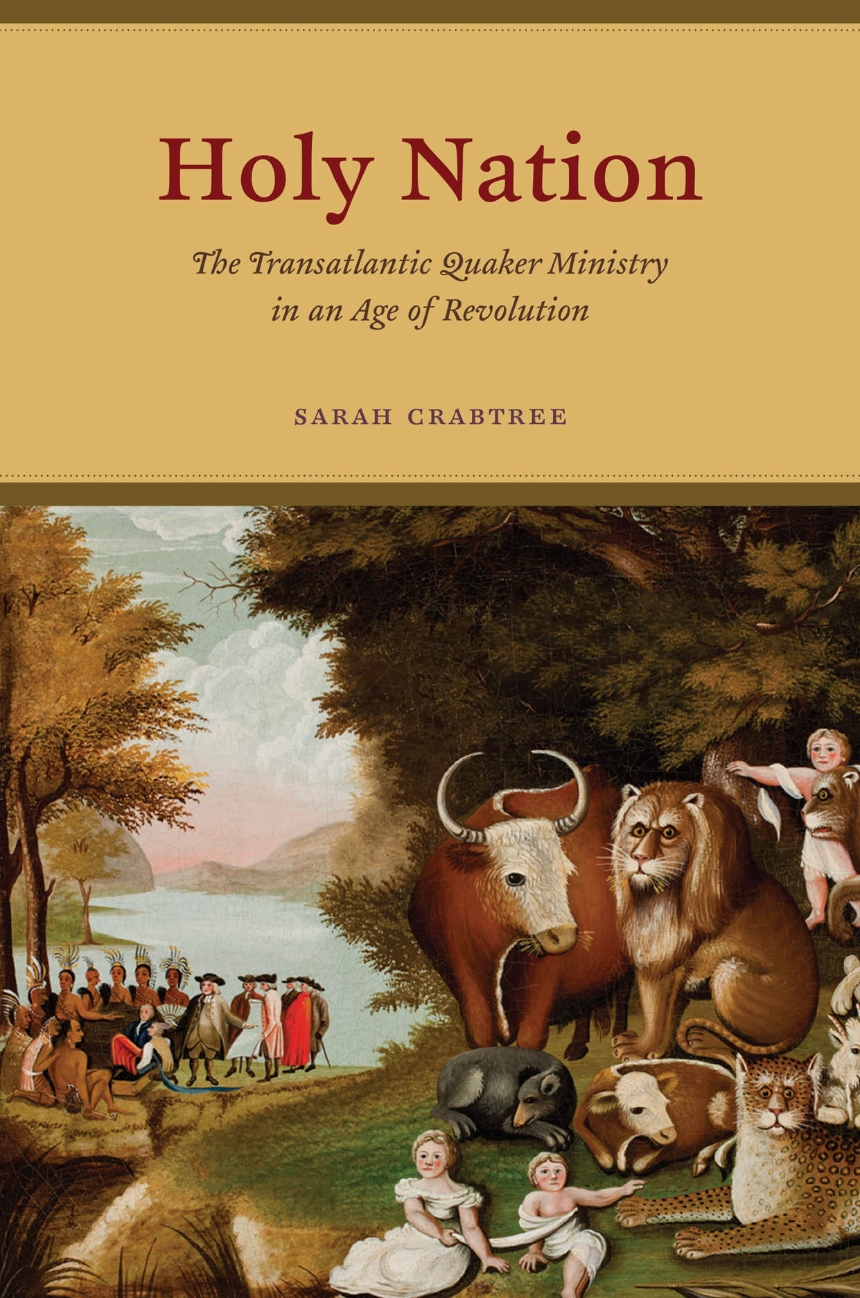Holy Nation
The Transatlantic Quaker Ministry in an Age of Revolution
Early American Quakers have long been perceived as retiring separatists, but in Holy Nation Sarah Crabtree transforms our historical understanding of the sect by drawing on the sermons, diaries, and correspondence of Quakers themselves. Situating Quakerism within the larger intellectual and religious undercurrents of the Atlantic World, Crabtree shows how Quakers forged a paradoxical sense of their place in the world as militant warriors fighting for peace. She argues that during the turbulent Age of Revolution and Reaction, the Religious Society of Friends forged a “holy nation,” a transnational community of like-minded believers committed first and foremost to divine law and to one another. Declaring themselves citizens of their own nation served to underscore the decidedly unholy nature of the nation-state, worldly governments, and profane laws. As a result, campaigns of persecution against the Friends escalated as those in power moved to declare Quakers aliens and traitors to their home countries.
Holy Nation convincingly shows that ideals and actions were inseparable for the Society of Friends, yielding an account of Quakerism that is simultaneously a history of the faith and its adherents and a history of its confrontations with the wider world. Ultimately, Crabtree argues, the conflicts experienced between obligations of church and state that Quakers faced can illuminate similar contemporary struggles.
Holy Nation convincingly shows that ideals and actions were inseparable for the Society of Friends, yielding an account of Quakerism that is simultaneously a history of the faith and its adherents and a history of its confrontations with the wider world. Ultimately, Crabtree argues, the conflicts experienced between obligations of church and state that Quakers faced can illuminate similar contemporary struggles.
304 pages | 3 halftones | 6 x 9 | © 2015
American Beginnings, 1500-1900
History: American History
Religion: American Religions
Reviews
Table of Contents
List of Abbreviations
Introduction
Holy Nation
Part I: Combat, 1754–89
1. Zion in Crisis: Friends as the Israel of Old
2. Lamb-Like Warriors: The Quakers’ Church Militant
Part II: Compromise, 1779–1809
3. Walled Gardens: Friends’ Schools
Part III: Concession, 1793–1826
4. The Still, Small Voice: Quaker Activism
5. The Whole World My Country: A Cosmopolitan Society
Conclusion: At Peace with the World, at War with Itself
Acknowledgments
Notes
Index
Introduction
Holy Nation
Part I: Combat, 1754–89
1. Zion in Crisis: Friends as the Israel of Old
2. Lamb-Like Warriors: The Quakers’ Church Militant
Part II: Compromise, 1779–1809
3. Walled Gardens: Friends’ Schools
Part III: Concession, 1793–1826
4. The Still, Small Voice: Quaker Activism
5. The Whole World My Country: A Cosmopolitan Society
Conclusion: At Peace with the World, at War with Itself
Acknowledgments
Notes
Index
